All Stories
-
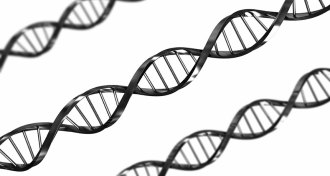 Genetics
GeneticsNew catalog of human genetic variation could improve diagnosis
Study of human protein-coding variation reveals which genes are more likely to be involved in genetic diseases.
-
 Climate
ClimateGeoengineering is world’s last hope, new book argues
Geoengineering is humankind’s only viable solution to curb climate change impacts, a journalist contends in The Planet Remade.
-
 Life
Life‘Racing Extinction’ documents plight of endangered species
The new documentary "Racing Extinction" offers hope that people can halt the sixth mass extinction.
-
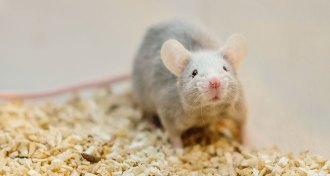 Health & Medicine
Health & MedicineChilly cages may skew disease studies in lab mice
Mice studies on diet and human disease might be marred by stress of cold temperatures in their cages.
-
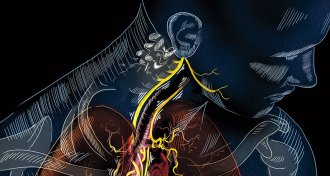 Neuroscience
NeuroscienceViva vagus: Wandering nerve could lead to range of therapies
Researchers are testing ways to stimulate the vagus nerve to treat a slew of ailments.
-
 Quantum Physics
Quantum PhysicsMore tests confirm quantum spookiness
New experimental results confirm and strengthen evidence for the “spooky” reality of quantum physics.
By Andrew Grant -
 Planetary Science
Planetary ScienceTwo-stage process formed moon, simulations suggest
Certain elements absent from lunar samples but present on Earth might be hidden deep inside the moon, a relic from how it was put together.
-
 Health & Medicine
Health & MedicinePutting the big chill on cryotherapy
Evidence is lacking for whole-body cryotherapy as a treatment for muscle soreness.
By Meghan Rosen -
 Planetary Science
Planetary ScienceMighty winds fuel megastorms on Titan
Saturn’s moon Titan might produce long-lasting storms squalls that flood the surface with liquid methane.
-
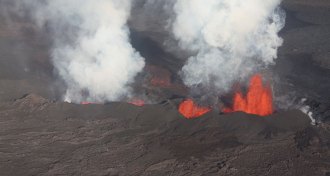 Earth
EarthEarth’s water originated close to home, lava analysis suggests
Scarcity of a hydrogen isotope called deuterium in molten rock from Earth’s depths suggests that the planet’s H2O originated from water-logged dust during formation, not comets.
-
 Astronomy
AstronomyCosmic rays maintain their mystery
Cosmic rays come from all over the universe, including some places we’re not so sure about.
-
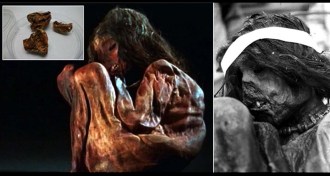 Anthropology
AnthropologyMummified boy’s DNA unveils new but ancient maternal lineage
An Inca child’s DNA shows he hailed from a newly identified line of maternal ancestors.
By Bruce Bower